Vocabulary expansion Reading Non-Fiction Worksheets for Ages 7-9
9 filtered results
-
From - To
Boost your child's vocabulary with our engaging non-fiction reading worksheets tailored for ages 7-9. Kids Academy offers a wide variety of printable resources designed to enhance word knowledge and reading comprehension. Our worksheets introduce young learners to new terms through captivating non-fiction texts, fostering critical thinking and curiosity. With topics ranging from science to history, students will explore diverse subjects while naturally expanding their vocabulary. Essential for students in grades two and three, these educational tools support vocabulary enrichment and language skills development. Make learning fun and effective with Kids Academy's expertly crafted vocabulary expansion worksheets!
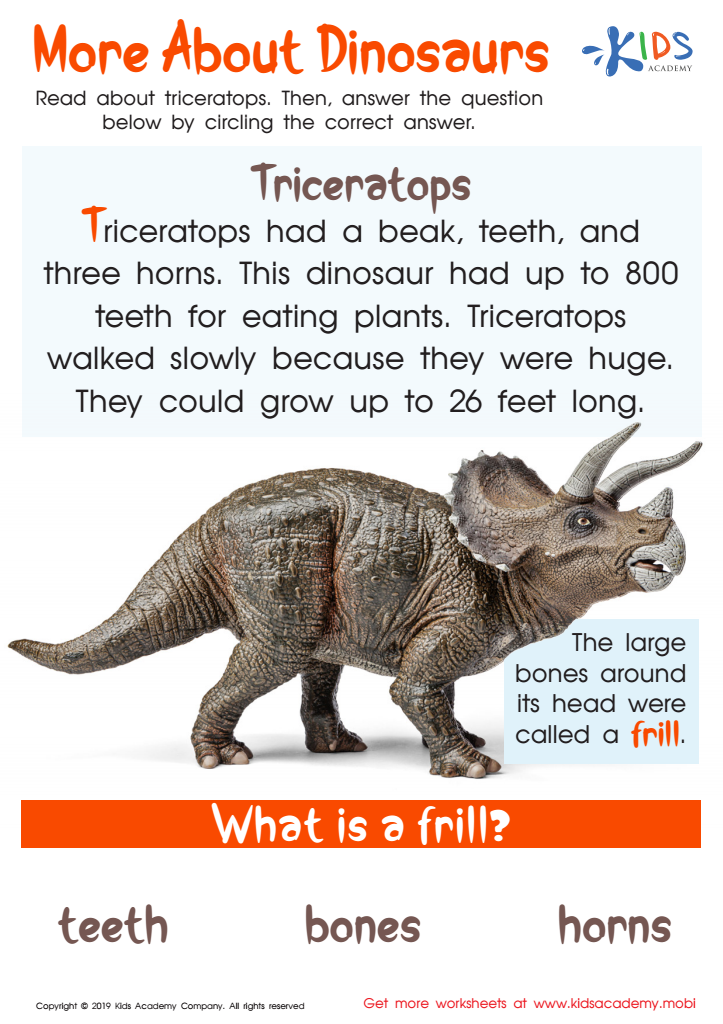

More About Dinosaurs Worksheet
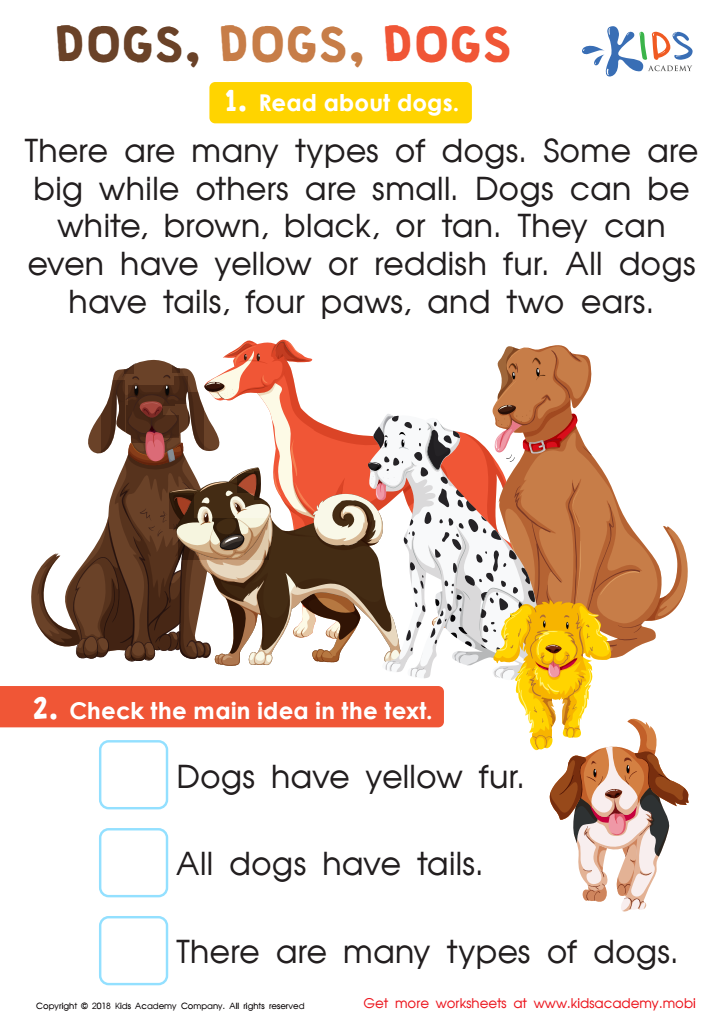

Dogs, Dogs Worksheet
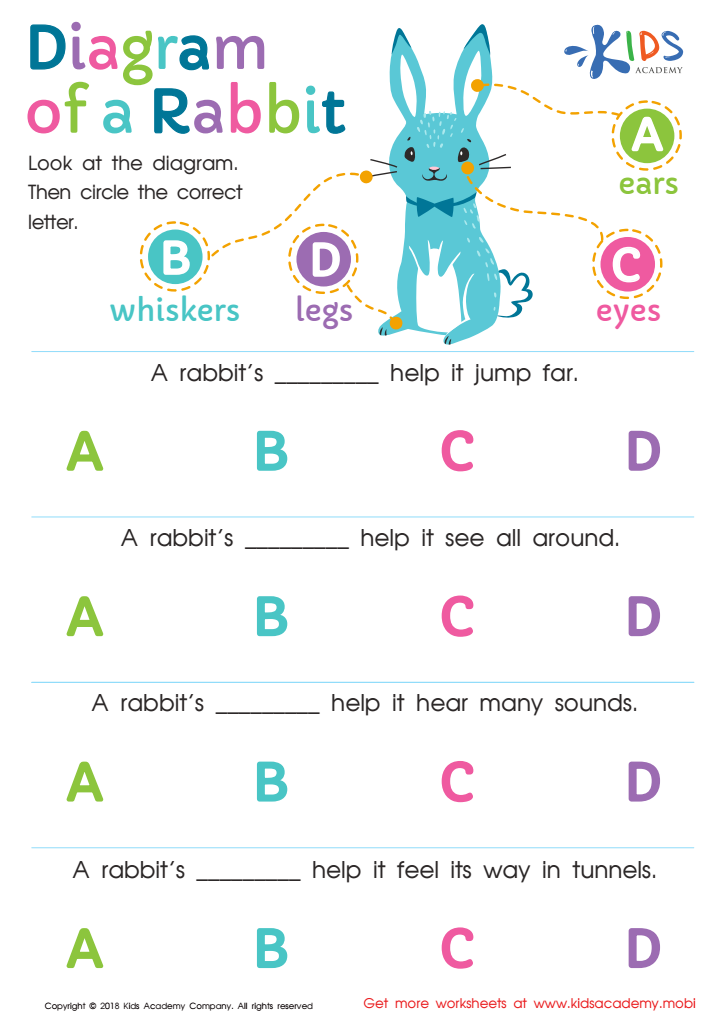

Diagram of a Rabbit Worksheet
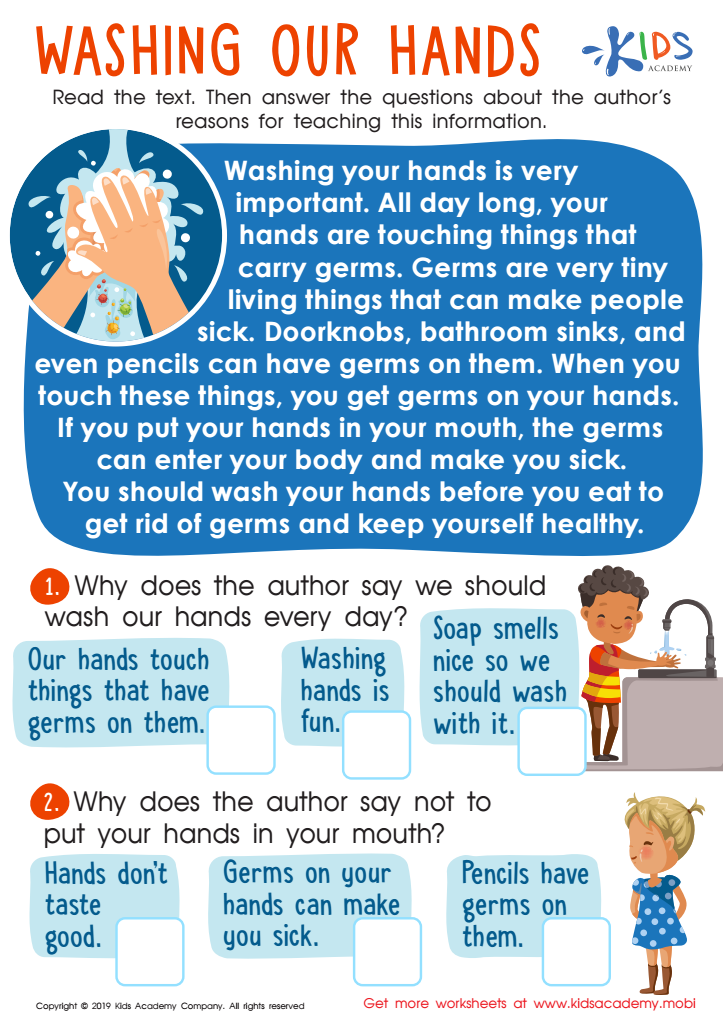

Washing Our Hands Worksheet
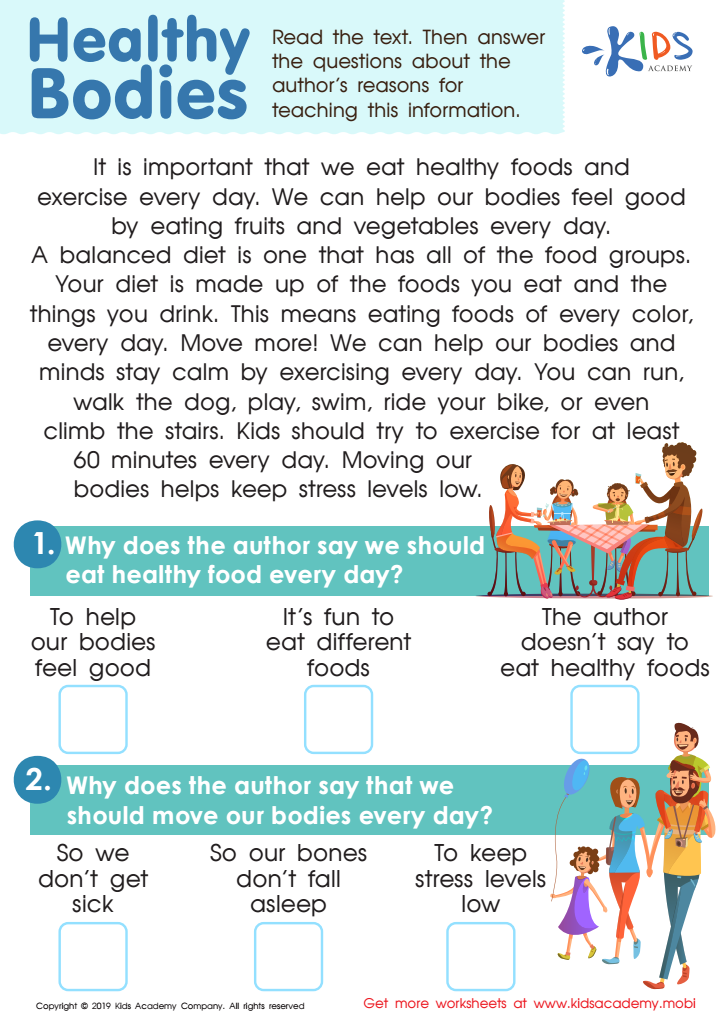

Healthy Bodies Worksheet
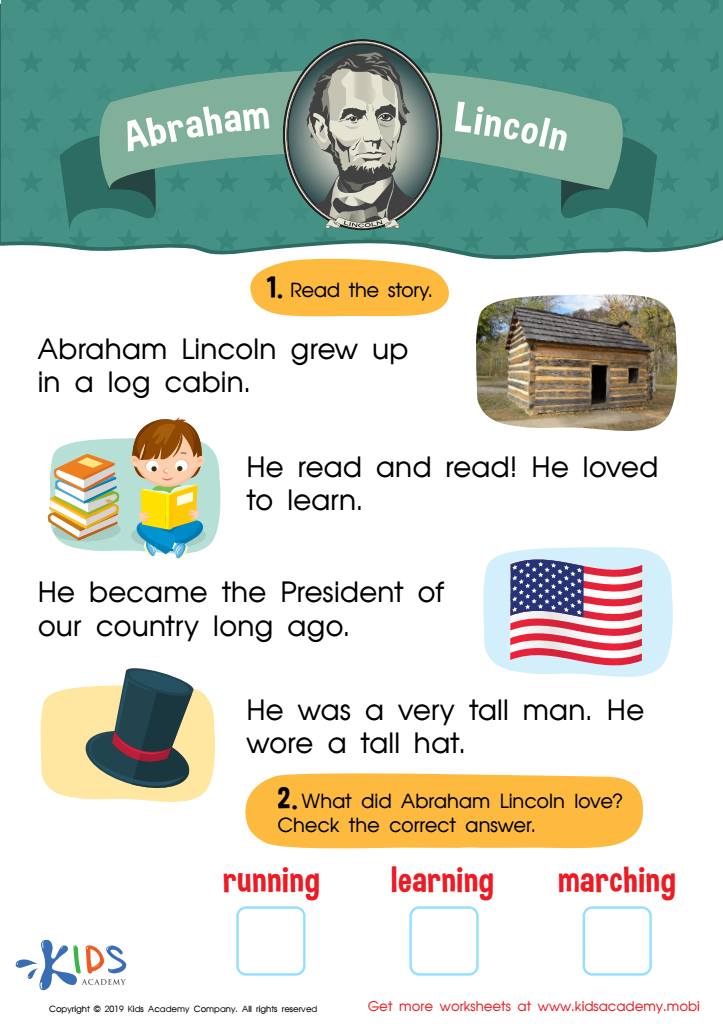

Abraham Lincoln Worksheet
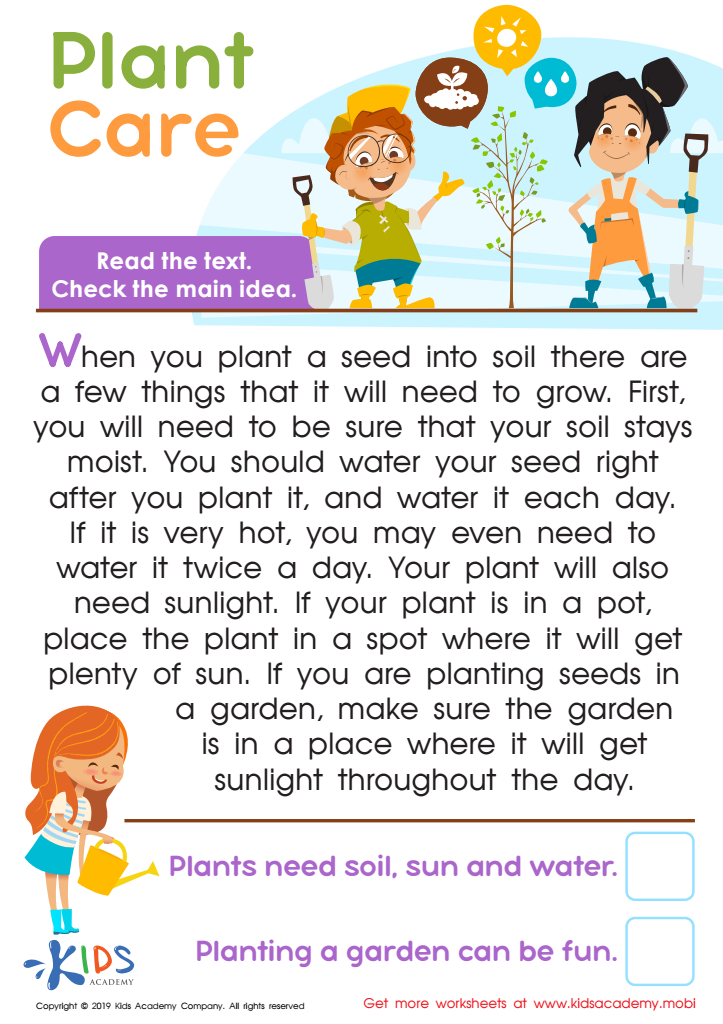

Plant Care Worksheet
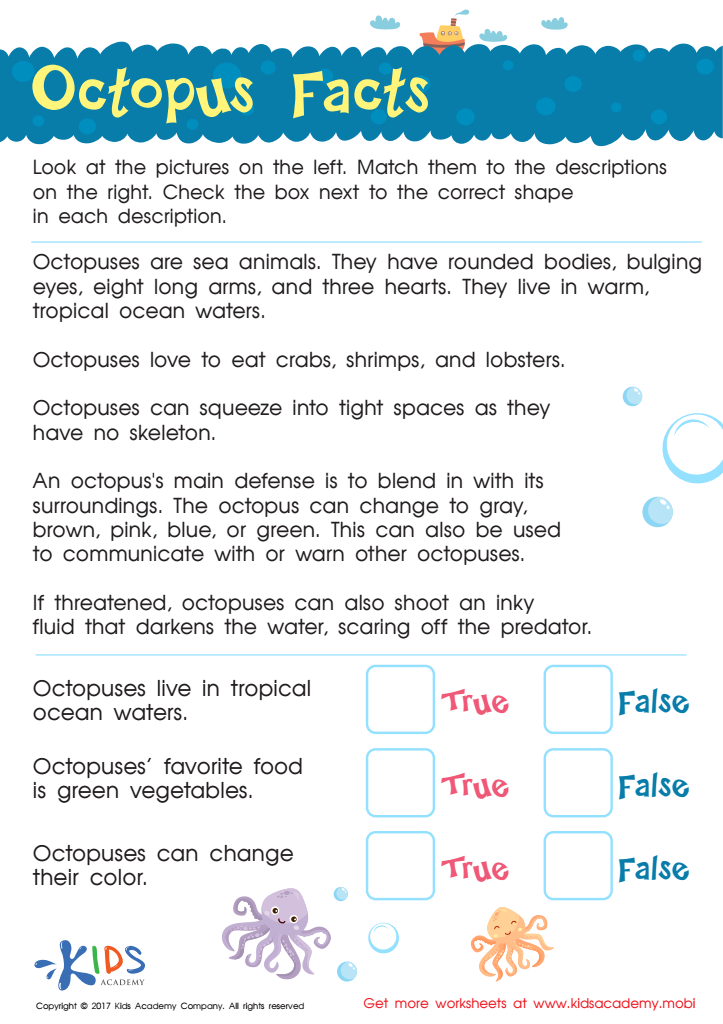

Octopus Facts Worksheet For Kids
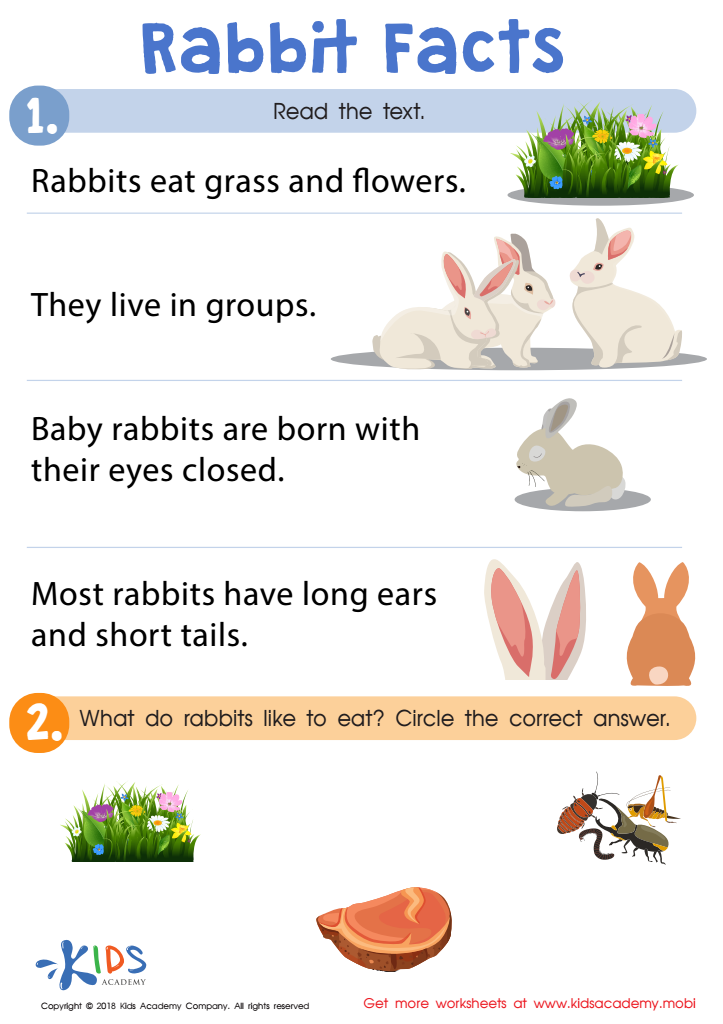

Rabbit Facts Worksheet
Parents and teachers should prioritize vocabulary expansion through non-fiction reading for children aged 7-9 because it plays a crucial role in their cognitive and academic development. At this stage, children's brains are highly receptive, and expanding their vocabulary helps enhance language skills, comprehension abilities, and academic performance.
Non-fiction texts introduce children to new words and concepts they may not encounter in everyday conversation or fictional stories. For example, topics like science, history, and geography expose them to technical language and complex ideas that broaden their knowledge base and improve their ability to understand informational content.
Furthermore, a richer vocabulary aids children in expressing themselves more clearly and effectively, which is vital for both social interactions and academic success. When children can articulate their thoughts and comprehend instructions and questions, they are more likely to excel in school activities and standardized tests.
Moreover, non-fiction reading fosters critical thinking and curiosity. Children become more inquisitive about the world around them and develop skills such as analyzing information, making connections, and understanding cause and effect.
In summary, investing in vocabulary expansion through non-fiction reading during these formative years sets a solid foundation for lifelong learning, effective communication, and academic achievement, making it an essential focus for parents and educators alike.

 Assign to My Students
Assign to My Students






















